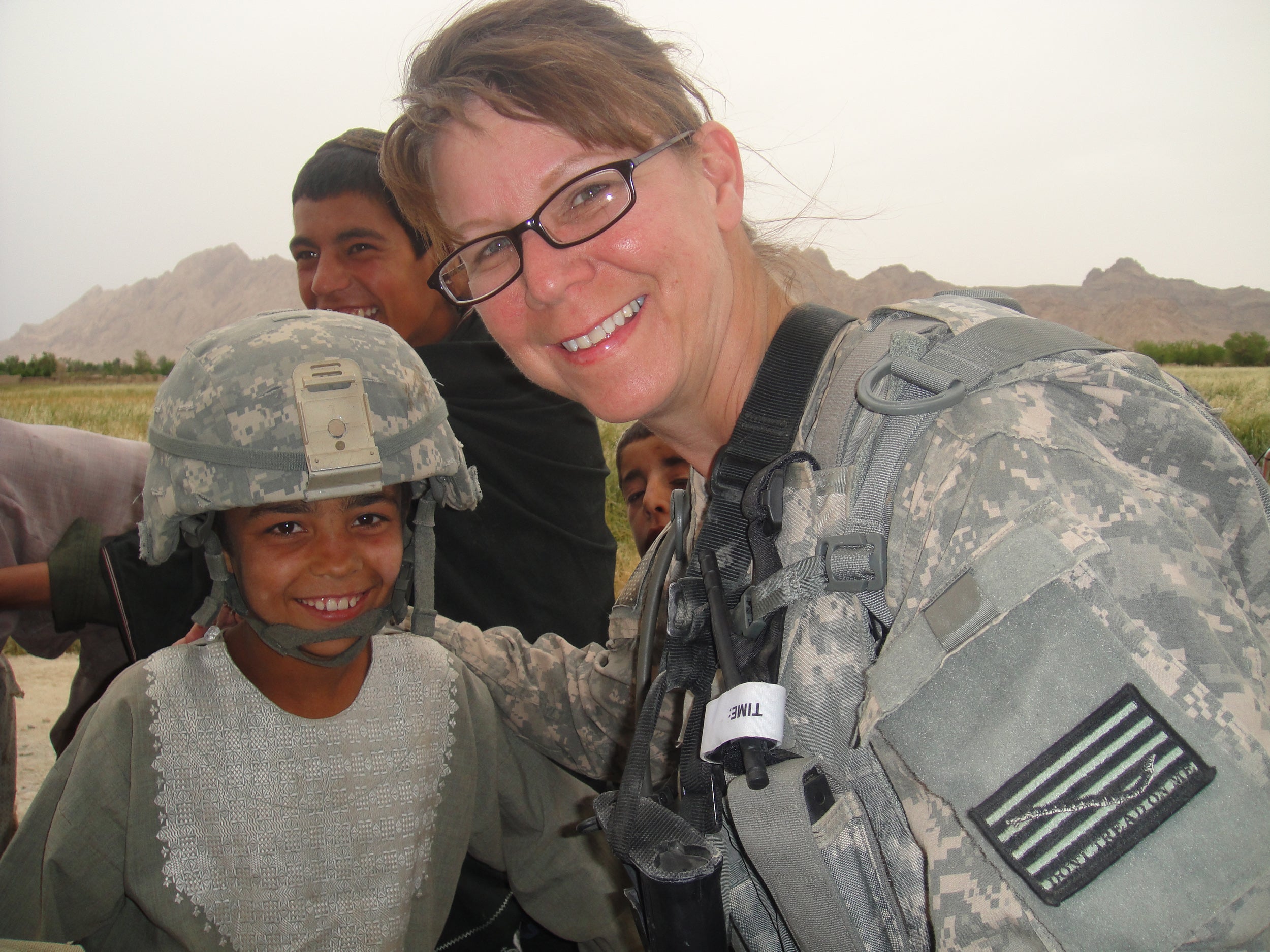Serving women who serve: Symposium to address military women's health
What does a veteran look like?
The only way to know for sure if someone is a veteran is to ask – but people don’t often ask women. This can have significant implications when it comes to health care.
“Once upon a time it was a given that all men served. But having women in the military is not new. Somehow it’s still always a shock when people find out I was in the Army,” Teri Reid said.
Reid spent eight years on active duty and 20 years in the reserves as a nurse in the Army, part of a tradition that dates back to the foundation of the Army Nurse Corps in 1901.
While Reid considers herself fortunate to have not had any major health issues, as a veteran and a health care professional, she knows how important it is for providers to understand their patients’ experiences.

Master Chief Petty Officer Patrice (Pat) Frede, U.S. Navy. Frede works in ECU Human Resources. (Contributed photo)
Area health care providers will have a chance to learn more about women service members like Reid at the second annual Military Women’s Health Symposium on Sept. 19. Organized by East Carolina University, Durham VA Medical Center, Eastern Area Health Education Center and other partners, this symposium was started to bring both civilian and military providers together to share emerging knowledge and best practices in treating this population.
There are more than 82,500 women veterans in North Carolina, according to 2017 statistics from the U.S. Department of Veterans Affairs. In active duty, women comprise about 15 percent of the armed forces and serve in ever-expanding roles.
Reid attended the first conference in Greenville in 2017 after her friend and former supervisee Chrissy Sanford invited her to come along. Sanford was also in the Army Nurse Corps with 20 years of service. Both Reid and Sanford are pediatric nurse practitioners. Reid served on various bases in the U.S. treating soldiers’ children. Sanford served in various capacities, including deployment to Iraq in 2006-07 where she helped treat Iraqi children among other duties.
“Last year’s conference sounded so applicable to what we experienced and what we thought needed to be discussed,” Sanford said. “I think the conference was very good – so many different topics of discussion and great audience participation. I think it was very beneficial for all the participants. It brought up many issues specific to female veterans.”
This year’s topics include cardiovascular risk, musculoskeletal injuries, sexual trauma, suicide risk and prevention, transgender care and more. Other activities include a panel discussion with military women and trauma-sensitive yoga.
“Women comprise the fastest-growing veteran subpopulation,” said Dr. Keita Franklin, executive director for suicide prevention at the U.S. Department of Veterans Affairs Office of Mental Health and Suicide Prevention. Franklin is scheduled to present at the conference.
“Our most recent data tells us that in 2015, the suicide rate for all women veterans was about two times higher compared with non-veteran women, after adjusting for age,” Franklin said. “We know that no one organization alone can prevent suicide. For us to truly prevent veteran suicide, our efforts must reach beyond outside our walls and traditional health care settings to involve peers, family members, organizations, and the community.”

The second annual Military Women’s Health Symposium — organized by East Carolina University, Durham VA Medical Center, Eastern Area Health Education Center and other partners — will be held on Sept. 19. (Photo by Cliff Hollis)
In addition to veterans, the conference will also focus on active duty service members.
“The key is understanding our lifestyle and what we go through, and realizing that everyone has a different experience,” said Lt. Col. Melissa Coleman of the Army Reserve Officer Training Corps at ECU. “For women, not only do we serve when we deploy, we’re also mothers and partners and caregivers – it affects all the other things we do and our loved ones.”
One of the most important things providers can do is ask women about past military service, Reid said, adding, “and don’t be shocked if she says yes.”
Military women’s health care needs can be unique and beyond the familiarity of a civilian provider, so they need to know which services are available to them, Sanford said. “People don’t know what to say other than thank you for your service. We’re honored and proud to serve, but we need more.”
This program is jointly provided by the Office of Continuing Medical Education of the Brody School of Medicine at ECU, University of North Carolina Eshelman School of Pharmacy, Vidant Health, Duke Area Health Education Center, and the Durham VA Medical Center in association with Eastern Area Health Education Center.
To find out more or register for the conference, visit https://www.easternahec.net/courses-and-events/55921/2018-military-womens-health-symposium.
Call for Health Stories from Military Women
Are you a woman who serves or has served in the military? Are you willing to share how your service has impacted your health? We want to hear from you! Eastern Area Health Education Center is collecting health stories and images from active duty and veteran women of eastern North Carolina. These stories and images will be compiled into posters to be displayed at the upcoming Military Women’s Health Symposium for health care providers on Sept. 19. These posters will also become a public traveling exhibit for area hospitals and campuses. The goal of this symposium is to advance care for women who serve and increase both civilian and military provider awareness of the issues military women face. Your stories will help local providers and the public better understand the unique health needs of military women.
Submissions will be collected through Aug. 17. Stories should be limited to 250 words and must be health-related. Not all submissions may be used and some may be edited for clarity. Images are optional but encouraged. Submissions may be anonymous. Email submissions to Jackie Drake at drakej@ecu.edu or call 252-744-5217.
-by Jackie Drake, University Communications